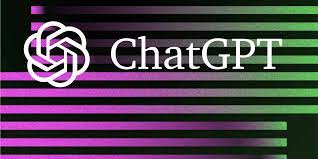Introduction:
Conversational AI has come a long way since the days of
ELIZA, the first chatbot developed in the 1960s. Today, conversational AI has
become an essential part of our lives. From chatbots that help us order pizza
to voice assistants that can play our favorite songs, conversational AI is
everywhere. And with the advancement of natural language processing (NLP)
technology, conversational AI is only getting better. In this blog, we will
explore the future of conversational AI and how Chat GPT, a large language model
trained by OpenAI, is changing the game.
The Power of Chat GPT:
Chat GPT is a powerful conversational AI tool that uses deep
learning to generate human-like responses to user inputs. The model was trained
on a massive dataset of text, allowing it to learn the nuances of human
language and generate responses that are indistinguishable from those of a
human. With Chat GPT, businesses can build chatbots that can engage with
customers in a more natural and conversational way, improving the customer experience.
Chat GPT in Action:
One of the most exciting applications of Chat GPT is its
ability to create personalized chatbots that can understand the needs of
individual customers. By analyzing customer data, Chat GPT can generate
responses that are tailored to each customer, creating a more personalized
experience. This can lead to increased customer satisfaction and loyalty, which
is essential for any business.
Another application of Chat GPT is in the field of virtual
assistants. Virtual assistants like Siri and Alexa are already popular, but
they are limited in their ability to understand complex requests. With Chat
GPT, virtual assistants can become more advanced, allowing them to understand
and respond to more complex queries. This can lead to a more seamless
interaction between humans and machines, making virtual assistants an even more
valuable tool.
The Future of Conversational AI:
The future of conversational AI is bright, and Chat GPT is
at the forefront of this revolution. As NLP technology advances, we can expect
conversational AI to become even more human-like in its responses. Chatbots and
virtual assistants will become even more sophisticated, allowing us to interact
with them in ways that were once unimaginable. We may even see the development
of conversational AI in areas such as healthcare, where chatbots can provide
medical advice and support to patients.
Challenges in the Future of Conversational AI:
While the future of conversational AI is exciting, there are
also challenges to overcome. One of the biggest challenges is the ethical
implications of conversational AI. As chatbots and virtual assistants become
more human-like, there is a risk of them being used to deceive or manipulate people.
It is important for developers to ensure that conversational AI is used
ethically and responsibly.
Another challenge is the issue of bias. AI models like Chat
GPT learn from the data they are trained on, and if that data is biased, the
model will also be biased. This can lead to discrimination and unfair treatment
of certain groups of people. It is important for developers to be aware of this
issue and take steps to mitigate bias in their models.
The Role of Chat GPT in Overcoming Challenges:
Chat GPT can play a crucial role in overcoming these
challenges. For example, it can be used to create chatbots that are transparent
about their identity and limitations, ensuring that users are not deceived or
manipulated. Chat GPT can also be used to create chatbots that are trained on
diverse datasets, reducing the risk of bias and discrimination.
In addition, OpenAI, the developers of Chat GPT, have taken
steps to address these issues. They have released tools and resources to help
developers identify and mitigate bias in their AI models. They have also
created a set of ethical guidelines for the development and use of AI, ensuring
that Chat GPT is used ethically and responsibly.
Conclusion:
The future of conversational AI is both exciting and
challenging. Chat GPT is a powerful tool that is changing the game when it
comes to conversational AI. However, it is important for developers to use Chat
GPT and other AI models ethically and responsibly, and to address issues such
as bias and deception. With the right approach, conversational AI has the
potential to transform the way we interact with machines and improve our lives
in countless ways.

No comments:
Post a Comment